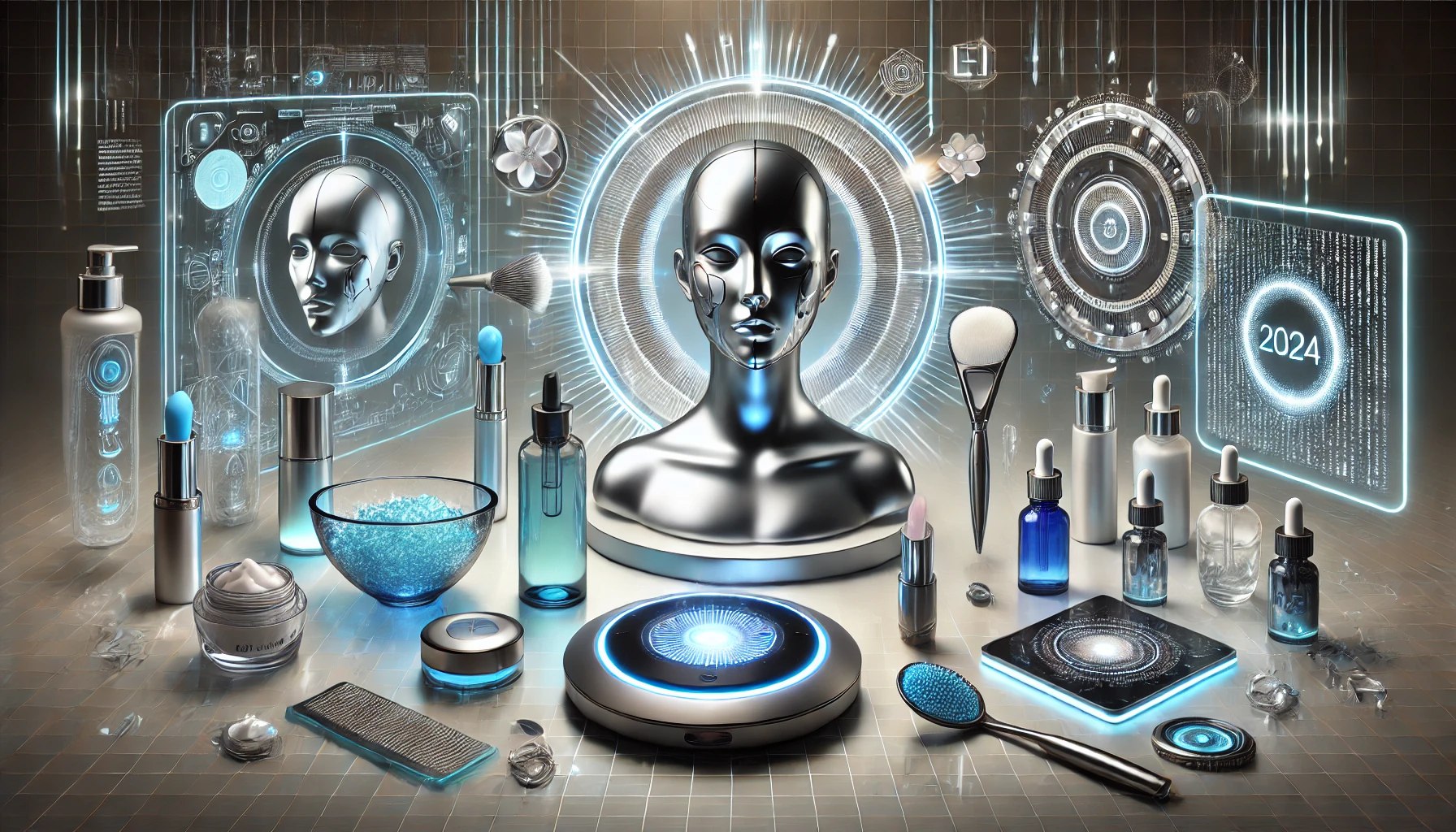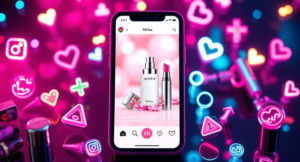Table of Contents
Discover 2024’s top 10 beauty tech innovations revolutionizing skincare, from AI-powered solutions to advanced product formulations for glowing skin.
The skincare industry is on the cusp of a technological revolution, driven by cutting-edge innovations designed to improve how we care for our skin. In 2024, beauty brands are embracing new technologies like AI-powered analysis, smart devices, and eco-friendly solutions to transform skincare routines. These innovations not only elevate the effectiveness of products but also redefine customer experiences. Let’s explore the top 10 breakthrough beauty tech innovations that are revolutionizing the skincare industry this year.
1. AI-Powered Skincare Personalization
Artificial intelligence (AI) is leading the charge in personalized skincare. Using sophisticated algorithms, AI analyzes skin types, conditions, and lifestyle factors to recommend tailored skincare routines. Apps and devices can scan a user’s skin and offer product recommendations in real-time, ensuring that consumers receive exactly what their skin needs.

Why It’s a Game-Changer: AI-powered solutions ensure a higher level of accuracy in skincare, eliminating guesswork and offering products specifically formulated for an individual’s skin. Brands like Proven Skincare and Atolla are leveraging AI to customize products for each user, making personalized beauty more accessible.
For a closer look at how beauty brands are preparing for the future, check out our article on Beauty Accelerate 2025, where we explore the innovations transforming the beauty industry. Unlock the Future of Beauty at Beauty Accelerate 2025—Don’t Miss It!
2. Smart Skincare Devices
From at-home facials to intelligent cleansing brushes, smart skincare devices are empowering consumers to take salon-quality treatments into their own hands. Devices like FOREO’s LUNA and NuFACE are using sonic pulses, microcurrents, and LED therapy to enhance product absorption, improve skin texture, and provide anti-aging benefits.
Why It’s a Game-Changer: These devices enable users to enjoy professional-level skincare treatments without leaving home. With the rise of smart technology, consumers now have access to convenient, effective skincare solutions that fit their busy lifestyles.

3. Augmented Reality (AR) in Virtual Try-Ons
AR is changing the way consumers shop for beauty products. Virtual try-ons allow customers to test skincare products, makeup, and even sunscreen shades from the comfort of their homes. Brands like L’Oréal and Sephora have incorporated AR technology into their apps, allowing users to see how products will look on their skin before making a purchase.

Why It’s a Game-Changer: AR reduces the uncertainty of online beauty shopping by allowing customers to see real-time results. This technology leads to fewer returns and a more satisfying shopping experience, ultimately increasing customer confidence in their purchases.
4. AI-Driven Skin Diagnostics
AI isn’t just for product recommendations. Skincare companies are developing AI-powered diagnostic tools that analyze users’ skin conditions and provide personalized treatment plans. Devices like the HiMirror analyze factors such as wrinkles, pores, and hydration levels to offer a complete skincare diagnosis.
Why It’s a Game-Changer: By analyzing skin issues in-depth, AI diagnostics help consumers address problems at the root level. With detailed data, users can make informed decisions about treatments and products that are most suitable for their skin type and concerns.

5. Clean Beauty Formulations with Tech-Enhanced Ingredients
The clean beauty movement continues to gain momentum, and technology is playing a crucial role in developing safer, more sustainable skincare formulations. Brands are using biotech processes to create eco-friendly ingredients, such as lab-grown collagen and plant-based peptides. Companies like Biossance and The Ordinary are leaders in integrating these innovative ingredients into their products.

Why It’s a Game-Changer: Tech-enhanced clean beauty products offer effective results without harmful chemicals. By using sustainable and safe ingredients, brands are meeting consumer demand for environmentally conscious skincare while delivering high-performance results.
6. Blue Light Protection Products
With the increased use of digital devices, skincare brands are focusing on blue light protection. Prolonged exposure to screens can lead to premature aging, pigmentation, and skin damage. Skincare products fortified with blue light-blocking ingredients, like Urban Decay’s All Nighter Setting Spray or Supergoop’s Unseen Sunscreen, are becoming essential in daily routines.
Why It’s a Game-Changer: As more people work and socialize digitally, blue light protection is crucial in preventing tech-induced skin damage. These products offer a new layer of defense, protecting users from the invisible but harmful effects of screen exposure.

7. 3D-Printed Skincare Products
3D printing is making waves in the beauty industry by allowing companies to create customized skincare products on demand. Brands like Neutrogena are already exploring 3D-printed face masks tailored to an individual’s facial shape and skin concerns. This innovation leads to more personalized and precise product formulations.

Why It’s a Game-Changer: 3D printing enables unprecedented customization in skincare. Consumers can now receive products specifically designed for their unique skin structure, making beauty routines more efficient and effective.
8. Microbiome-Friendly Skincare
As research into the skin microbiome advances, more brands are creating products that support a healthy balance of bacteria on the skin. Probiotics, prebiotics, and postbiotics are being incorporated into skincare formulations to promote a balanced microbiome. Brands like Aurelia and Mother Dirt are at the forefront of microbiome-friendly skincare.

Why It’s a Game-Changer: Microbiome-focused products help maintain the skin’s natural defenses, reducing inflammation, breakouts, and sensitivity. This innovation is particularly important for consumers seeking gentle, yet effective skincare solutions.
9. Waterless Beauty
Water scarcity and sustainability concerns are driving the development of waterless beauty products. Concentrated formulas, such as balms, oils, and powders, are replacing traditional water-based products. Brands like Lush and Ethique have pioneered this movement by offering solid beauty products that require little to no water.
Why It’s a Game-Changer: Waterless beauty products not only conserve water but also offer concentrated formulas that are more potent and long-lasting. These eco-friendly innovations appeal to environmentally conscious consumers and are setting a new standard in sustainable beauty.

10. DNA-Based Skincare
Personalized beauty reaches new heights with DNA-based skincare. By analyzing a person’s genetic makeup, skincare brands can create custom formulations that cater to specific genetic predispositions, such as skin aging or pigmentation. Companies like GeneU and SkinDNA are utilizing this cutting-edge approach.

Why It’s a Game-Changer: DNA-based skincare offers a new level of personalization, helping users address skin issues that are rooted in their genetics. This innovation provides hyper-personalized solutions, making it one of the most advanced approaches in the industry.
Conclusion
The skincare industry is evolving rapidly, and beauty tech innovations are driving the change. From AI-powered diagnostics to DNA-based products, the future of skincare is personalized, sustainable, and tech-driven. Brands that embrace these breakthrough technologies are poised to lead the industry in 2024 and beyond, offering consumers smarter, more effective skincare solutions.
FAQs
- What is AI-powered skincare personalization?
AI-powered skincare personalization involves the use of artificial intelligence to recommend skincare products based on individual skin types and concerns. - How does blue light protection work in skincare?
Blue light protection products contain ingredients that shield the skin from the harmful effects of prolonged exposure to digital screens, which can cause premature aging and skin damage. - What are microbiome-friendly skincare products?
Microbiome-friendly skincare products contain probiotics, prebiotics, and postbiotics that promote a healthy balance of bacteria on the skin, enhancing its natural defenses. - What is 3D-printed skincare?
3D-printed skincare refers to the use of 3D printing technology to create personalized skincare products, such as face masks, based on an individual’s unique skin concerns and facial structure. - Why is waterless beauty becoming popular?
Waterless beauty products are gaining popularity due to their sustainability and potency. By conserving water and offering concentrated formulas, they appeal to eco-conscious consumers seeking effective skincare solutions.
Valeria





